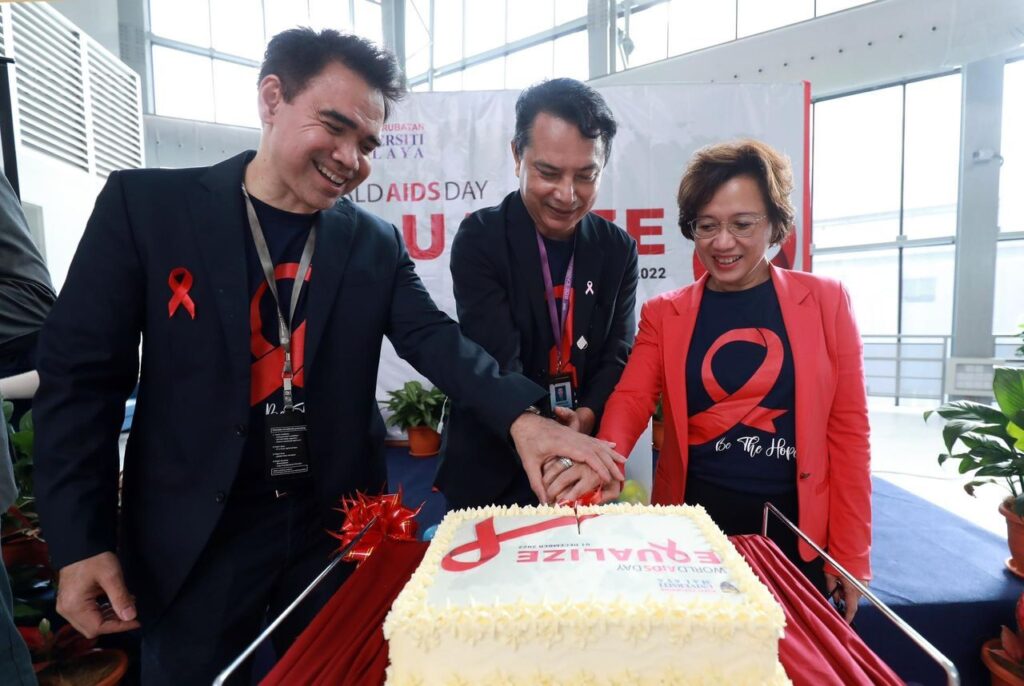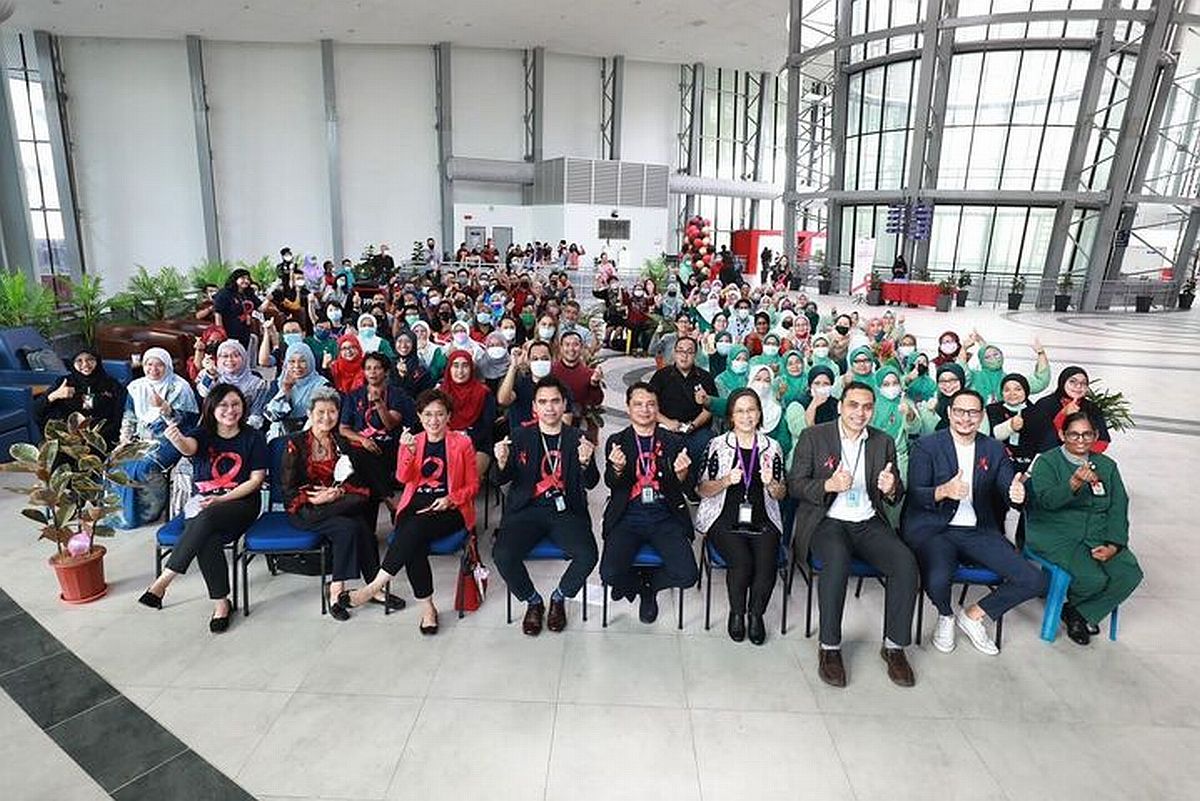KUALA LUMPUR, Dec 1 – The Ministry of Health (MOH) will soon make pre-exposure prophylaxis (PrEP), an oral medicine taken to prevent getting HIV from sex or injection drug use, available for free at selected public health clinics in states with high HIV prevalence.
The ministry is looking to scale up the use of the HIV prevention pill among people at risk of acquiring HIV, such as partners of people living with HIV (PLHIV), under the two-year programme, with assistance from the Global Fund, that is set to begin in January, according to a statement released by the MOH.
Despite its availability in Malaysia, access to PrEP has long been hindered by stigmatised attitudes and concerns of “risk compensation” or fear that people would actively engage in condomless sex, which slowed efforts to scale up PrEP in the public health sector.
Initial attempts were made to dispense PrEP through private primary care clinics which came at a cost, said Dr Raja Iskandar Shah Raja Azwa, associate professor of infectious diseases at University of Malaya.
“The cost (at private clinics) varies between about RM80 and RM140 per month. At the University of Malaya Medical Centre (UMMC), we are able to give it at reduced prices.
“We can offer it at RM30 because these are, sort of, government-related prices so it’s easier,” Dr Raja Iskandar told CodeBlue at the World AIDS Day Celebration here today, organised by the Malaysian AIDS Foundation (MAF) and UMMC.
“But people are less likely to want to come to a tertiary hospital. They want it to be community-based, they want it to be accessible, they want to come in and out of it quickly.”
Malaysia is committed to ending AIDS by 2030 by achieving the 95-95-95 global target despite falling short of meeting the global 2020 HIV goals, with a scorecard of 87-58-85.
The global AIDS target aims to achieve 95 per cent of those living with HIV to know their status, 95 per cent of those who know their status to be on treatment and 95 per cent of those on treatment to be virally suppressed – meaning the amount of HIV in their body is kept very low by antiretroviral drugs so that they are not infectious to others – or 95-95-95.
Experts have said that Malaysia will need to take more aggressive steps to make treatment more accessible if the country aims to end AIDS as a public health threat by 2030.
Dr Raja Iskandar said plans to make PrEP available at no cost at several public health clinics, or Klinik Kesihatan, are aimed at scaling up the use of the medicine to an estimated 9,000 to 10,000 key population members in Selangor, Klang Valley, Johor, Penang and Sabah.
The programme is run under the Malaysian AIDS Council (MAC), in collaboration with the MOH, and is funded by The Global Fund.
“Right now, there are about 18 (health clinics), but the plan is to scale up to about 21 health clinics. These clinics are already being accessed by key populations i.e. people living with or at risk of HIV (PLHIV) so they have built that good relationship and trust with populations at risk,” said Dr Raja Iskandar, a trustee of the MAF and infectious disease consultant at the UMMC.
PrEP Prescription And Future Access

PrEP pills can be taken daily for both women and men, or on demand for men.
“There are two ways of taking PrEP. You can either take it daily, which is the more common way. Once a day and continuously. For women, you have to take it six to seven times a week to be fully protected. For men, it’s generally about four days a week so there’s a gender difference in HIV protection offered by oral PrEP as well.
“For those who are likely to have frequent exposures, we ask patients to take it daily. For those with less frequent exposures, on demand PrEP may be an alternative option and this has shown to be as effective as taking daily PrEP but only in men, not in women.
“How you take that is two pills two to 24 hours before sex, then another pill 24 hours after, and another pill 24 hours after that. So, four pills, and then you stop. That is only for people who can anticipate sexual exposure and who are able to anticipate it at least two hours beforehand, and if you don’t have frequent sex,” Dr Raja Iskandar said.
Commenting on how pills will be dispensed at health clinics under the two-year free PrEP programme, Dr Raja Iskandar said people at risk will likely be given the option to either take daily or on-demand PrEP. “But as I said, on-demand PrEP can only be offered to men, but not women. Women will still have to take daily PrEP.”
Moving forward, Dr Raja Iskandar said the project is expected to be transitioned over to MOH if it is shown to be successful and that there is sufficient uptake among key populations.
“Projects under The Global Fund have to transition to MOH after two years. So, before we sign an agreement between The Global Fund and MOH, there needs to be some agreement from MOH that they will agree to take it on if the project is shown to be successful and that there’s uptake among key populations and people are retained in care, in follow up.
“As long as that is shown, there should be a commitment by the government to continue providing it. If that model works, then hopefully, it should be scaled up in the public sector,” he said.
Beyond the public sector, Dr Raja Iskandar said other service delivery models should also be considered to make PrEP even more accessible to key populations.
“PrEP is very much like the oral contraceptive pill, but for HIV. We shouldn’t overmedicalise it. If you had to get the oral contraceptive pill only from a clinic and you had to undertake a certain amount of tests before you can get the contraceptive pill, nobody would take it up.
“We shouldn’t overmedicalise PrEP and I think, alongside the public sector, there should be other models of care or service delivery models like a community pharmacy-led PrEP service delivery model,” Dr Raja Iskandar said. “It’s thinking outside the box and bringing services to people.”
He said a community pharmacy-led service delivery model would see over-the-counter access to PrEP, but with clinician oversight in PrEP prescribing.
“You cannot dispense a drug unless you have a prescription from a doctor. So, the model that has been proposed, and this is being done under research, is you have like a PrEP checklist of what the community pharmacist has to go through.
“If the patients fulfil certain risk criteria, whether they had a recent negative HIV test, you will then be linked to an online platform of primary care doctors via DOC2US, for example, who will then go through the checklist and provide you with an e-prescription.
“They never see the doctor but there is clinician oversight, and they are responsible for providing e-prescriptions. Then, subsequently, the patient leaves with PrEP on the same day. So, these are models of care that we need to think about,” Dr Raja Iskandar said.
“Otherwise, I feel like we’re not going to be able to scale it up to the level where it would impact HIV incidence which would be such a shame. We have to learn from the mistakes we made with contraception. Contraceptive uptake in this country is so poor.”
In Malaysia, despite the wide availability of contraception services even in remote rural health clinics, the use of contraception among women with diabetes is 28.8 per cent, even lower than the general female population, which is 35 per cent for modern contraception.








